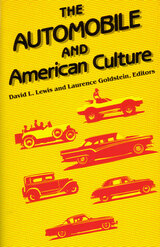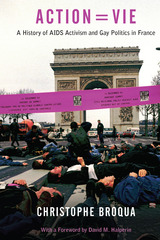
Act Up-Paris became one of the most notable protest groups in France in the mid-1990s. Founded in 1989, and following the New York model, it became a confrontational voice representing the interests of those affected by HIV through openly political activism. Action=Vie, the English-language translation of Christophe Broqua’s study of the grassroots activist branch, explains the reasons for the group’s success and sheds light on Act Up's defining features—such as its unique articulation between AIDS and gay activism.
Featuring numerous accounts by witnesses and participants, Broqua traces the history of Act Up-Paris and shows how thousands of gay men and women confronted the AIDS epidemic by mobilizing with public actions. Act Up-Paris helped shape the social definition not only of HIV-positive persons but also of sexual minorities. Broqua analyzes the changes brought about by the group, from the emergence of new treatments for HIV infection to normalizing homosexuality and a controversy involving HIV-positive writers’ remarks about unprotected sex. This rousing history ends in the mid-2000s before marriage equality and antiretroviral treatments caused Act Up-Paris to decline.
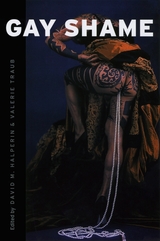
Gay Shame seeks to lift this unofficial ban on the investigation of homosexuality and shame by presenting critical work from the most vibrant frontier in contemporary queer studies. An esteemed list of contributors tackles a range of issues—questions of emotion, disreputable sexual histories, dissident gender identities, and embarrassing figures and moments in gay history—as they explore the possibility of reclaiming shame as a new, even productive, way to examine lesbian and gay culture.

“Provocatively argues that when it comes to defining what it means to be a homosexual man, sex is overrated…Culture matters more…[How To Be Gay] is never a bore.” —Dwight Garner, New York Times
No one raises an eyebrow if you suggest that a guy who arranges his furniture just so, rolls his eyes in exaggerated disbelief, likes techno music or show tunes, and knows all of Bette Davis's best lines by heart might, just possibly, be gay. But if you assert that male homosexuality is a cultural practice, expressive of a unique subjectivity and a distinctive relation to mainstream society, people will immediately protest. Such an idea, they will say, is just a stereotype-ridiculously simplistic, politically irresponsible, and morally suspect. The world acknowledges gay male culture as a fact but denies it as a truth.
David Halperin, a pioneer of LGBTQ studies, dares to suggest that gayness is a specific way of being that gay men must learn from one another in order to become who they are. Inspired by the notorious undergraduate course of the same title that Halperin taught at the University of Michigan, provoking cries of outrage from both the right-wing media and the gay press, How To Be Gay traces gay men's cultural difference to the social meaning of style.
Far from being deterred by stereotypes, Halperin concludes that the genius of gay culture resides in some of its most despised features: its aestheticism, snobbery, melodrama, adoration of glamour, caricatures of women, and obsession with mothers. The insights, impertinence, and unfazed critical intelligence displayed by gay culture, Halperin argues, have much to offer the heterosexual mainstream.
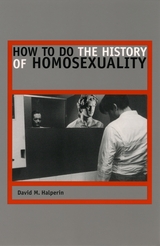
Dealing both with male homosexuality and with lesbianism, this study imparts to the history of sexuality a renewed sense of adventure and daring. It recovers the radical design of Michel Foucault's epochal work, salvaging Foucault's insights from common misapprehensions and making them newly available to historians, so that they can once again provide a powerful impetus for innovation in the field. Far from having exhausted Foucault's revolutionary ideas, Halperin maintains that we have yet to come to terms with their startling implications. Exploring the broader significance of historicizing desire, Halperin questions the tendency among scholars to reduce the history of sexuality to a mere history of sexual classifications instead of a history of human subjectivity itself. Finally, in a theoretical tour de force, Halperin offers an altogether new strategy for approaching the history of homosexuality—one that can accommodate both ruptures and continuities, both identity and difference in sexual experiences across time and space.
Impassioned but judicious, controversial but deeply informed, How to Do the History of Homosexuality is a book rich in suggestive propositions as well as eye-opening details. It will prove to be essential reading for anyone interested in the history of sexuality.
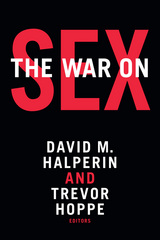
READERS
Browse our collection.
PUBLISHERS
See BiblioVault's publisher services.
STUDENT SERVICES
Files for college accessibility offices.
UChicago Accessibility Resources
home | accessibility | search | about | contact us
BiblioVault ® 2001 - 2025
The University of Chicago Press





